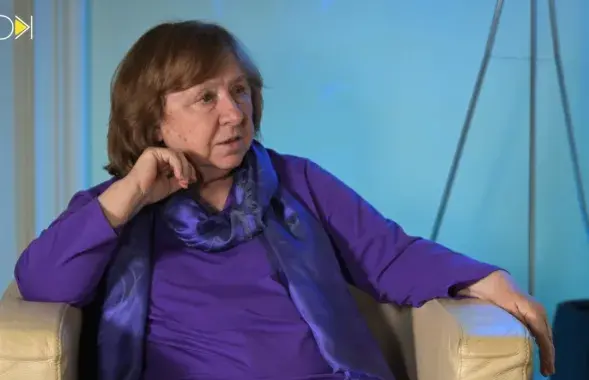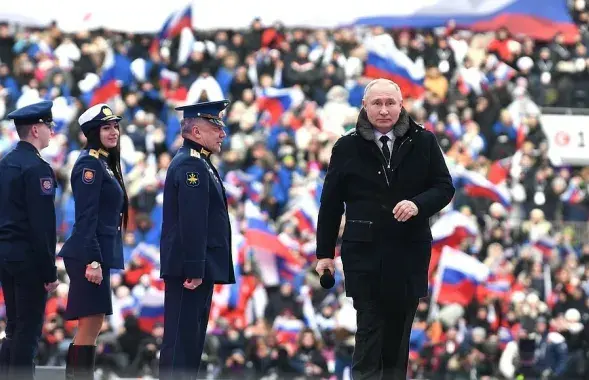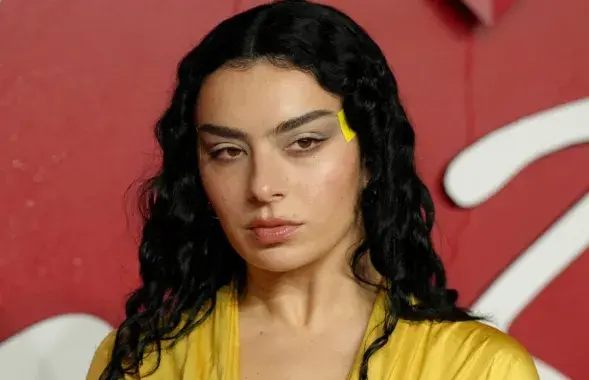Emir Kusturica: I am a great supporter of Belarus
The famous director has told what he likes about our country, which political theories he told Lukashenka about, why he is unable to make a movie about the Bela
About Belarus:
"As for your country, I am a great
supporter of it, because it accepts capitalism accurately, and also
because little Slavic countries make great Slavic brotherhood. I think
we and you have plenty of good things. So, you can state you have a
supporter".
About Minsk and Belarusians:
"As
I said before, this is the way all the cities in the world should look
like. I like kindness on your people's faces, and a very powerful Slavic
influence. And another thing, which we do not have - the combination of
North and a strong personality, the power hidden inside".
About the meeting with Lukashenka:
"It
was a very pleasant meeting. I remember him since the times he
supported our people during bombings, and I am very grateful to him for
that. It was a meeting with a really strong person. Maybe someone
dislikes that but he really is a strong person. I told him I really
liked the originality of this country and recounted several theories
existing with regard to the countries which transfer from communism to
socialism and from socialism to capitalism. According to this theory,
the slower a country is transferring to capitalism the better. It is
obvious this process is rather slow in your country. Maybe it's not very
convenient for you, but as I am a person of the past and the future, I
hope that it will be better and better for you as time goes by".
About the possibility to make a movie about Lukashenka:
"I
am not sure I could make such a film. Usually I make films when I feel
there is a ground for it. I am still under the influence of Dostoevsky
now".
About political views:
"My political
views are left, internationalist ones, I believe in good people, in
utopia world, I believe in ideals as well as in morals. All these
contradict the tendencies of the modern world. Call me an orthodox
socialist."
About close relations with Ingeborga Dapkunaite:
"As
for Ingeborga Dapkunaite - that's science fiction. It's strange as I
have never been a playboy and the tabloids have never been interested in
me. They confuse me with Goran Bregovic. We became friends when we both
were in the jury in Cannes, and continued our friendship during
shooting of a French movie. Then they invented this story which had
nothing to do with me. I hope it will not damage our warm friendly
relations".
About the film he is working on:
"I
am working on a story connected with Dostoevsky. It consists of three
smaller stories. I hope I will find both understanding and willingness
so that this film would be made. However, probably without Dapkunaite.
Probably... This film is about the punishment of those who love
Dostoevsky. There will be three stories. The film is about a young man
who wants to direct a movie "Crime and Punishment". He comes to a rich
person who arrives to Cannes to buy a hotel, but decides to become a
producer instead. He sets a dilemma before the director, saying he will
give him the money for the film if he kills his wife in exchange. Thus
the story turns into a comedy drama. Another story is about a girl who
lives in Belgrade and plays the part of Nastassia Filipauna. Something
comes over her from the above, like a revelation, that she is supposed
to get pregnant with the baby of Dostoevsky's grandson. So she buys a
ticket , arrives to St.Petersburg, knocks at the young man's door and
says "I have come here and I want to have a child with you". And this
moment is complicated by the third story, the one about where Ivan
Karamazau is now and how he is doing. Besides, he has become a monk.
However, being an intellectual he takes off his cassock and meets with
the girl who wishes to get pregnant with Dostoevsky's child. It is a
very complicated story and I am not going to tell how it ends".
About popularization of the national cinema:
"The
world is changing rapidly. A Japanese philosopher Fukayama said it was
the end of history, some 20 years ago. This was because of the great
informational and technological revolution. When Fukayama mentioned the
end of history, there occurred a big crisis and the history got back.
This is how it happens with big and minor peoples. Corporative
capitalism is the 4 companies which own the world - McDonalds, Coca-Cola
and some other. This was what Fukayama said when he claimed there was
no history anymore. The history got back, as well as the peoples and the
idea of the word's variety. Thus, protection of national cultures is in
the hands of small countries. There are two concepts in the world now:
the old European one, which says national culture should develop, and
the American one, according to which there's no need for culture at all.
The point is, which concept suits us more. This is fundamentally
connected with the development of a human being. A human being should be
identified, he is not a sky-scraper or something. We should be
idendified with something of spiritual origin, not the money one. And
our vision of freedom should correspond with Berdyaev's views, who said
freedom is difficult, slavery is easy. We all can become the fans of
the "Avatar" movie, but why if we have "Andrej Rublyov". The question
is, which part of our personality is covered by "Avatar", and which one -
by "Andrej Rublyov". Which of the two movies represents the poem of
freedom? Definitely, not "Avatar", but possibly - "Andrej Rublyov".
About "The Master and Margarita":
"They
say two people tried to make a movie basing on "The Master and
Margarita" and died. I think I should avoid such a possibility. It's a
big project. The question is, whether such a great literature work can
be the basis of a great movie. Even if the movie is great, it won't
necessarily be taken as such. I think this is one of the greatest novels
ever written. When they make lists of the greatest literature works
they usually omit this novel, but it is on the top of my personal list".
About his own city:
"I have made my own
city from woods. Many people call it an "incorrect" village. This is the
city which has all the features of the Ancient Greece. It is the city
with a cinema, a church, a store, a public bath, and an amphitheatre. We
produce milk, cheese and fish and make juice, because I called it a
city. We have no Coca-Cola in our city. I am the Mayor. There's no
election, no democracy there. We simply love each other so there's no
need for democracy. The style of governance can be called a "sweet
dictatorship". I think the future of the world lies in this governance
style. There are two variants of the world's development:
totalitarianism as the last stage of capitalism, or the rule of China.
Thus I think the future belongs to the "sweet dictatorship".
"It
is a large territory where 100 people work. People come there to
conduct seminars, festivals. My village is a social arena which hosts
events, but the citizens change".
About the family:
"My
family dislikes it when I tell about them. However, Stribor is now in
gym, and on the whole he is working on his record. My daughter Dunia
finishes the drama faculty and is writing a very interesting drama right
now. It is about an Englishman who has been transplanted a Serbian
heart".
















